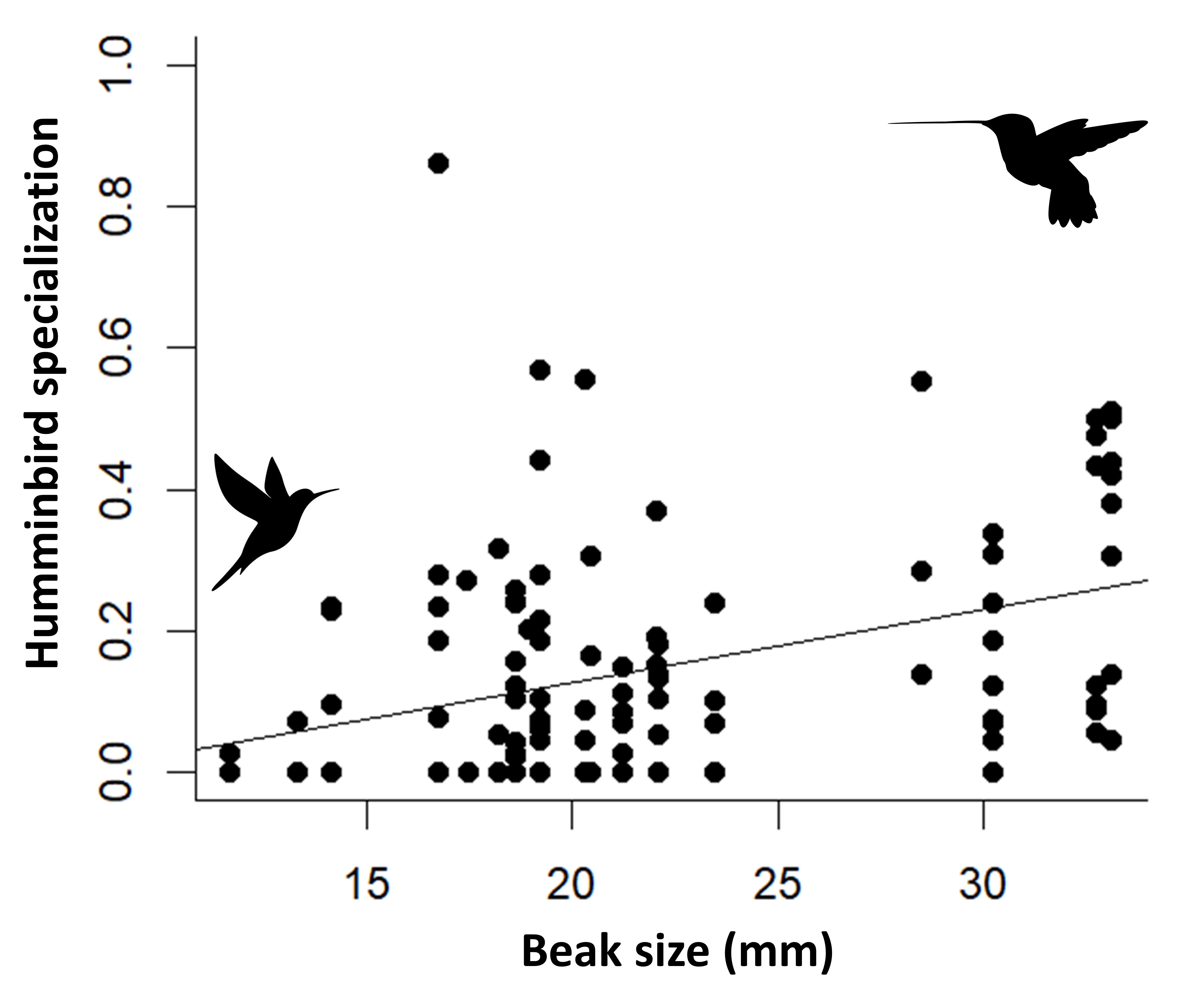Morphological Traits and Specialization of Neotropical Flower-hummingbird Networks
This study is an important contribution to understanding the role of morphological traits in shaping hummingbird-plant interaction networks in the Neotropics. While many studies emphasize the ecological significance of hummingbird pollination, few have explored how traits such as beak size, body weight, and floral specialization influence species interactions at the network level. Our findings highlight that morphological characteristics directly affect species specialization and interaction diversity, with beak size playing a key role in structuring hummingbird foraging behavior. Moreover, our study provides evidence that ornithophilous plants exhibit more similar interaction patterns than non-ornithophilous species. By integrating morphological and network approaches, our research enhances knowledge on species coexistence and pollination dynamics, offering valuable insights for conservation strategies aimed at preserving pollinator-plant mutualisms in Neotropical ecosystems.

Read the full article, here

